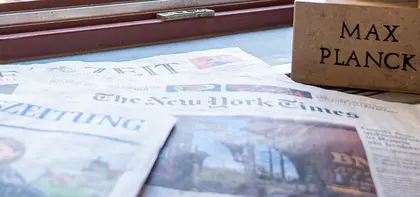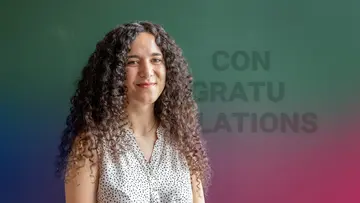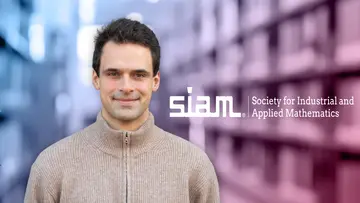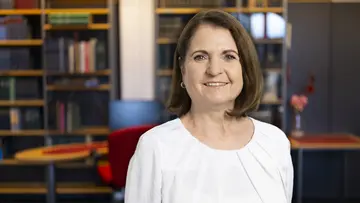
Successful Start to an Auspicious Career
Published Jul 20, 2023
Claudia Fevola has just finished her PhD on “Computation and Physics in Algebraic Geometry”. In November she will start as a Postdoctoral Fellow in the MATHEXP team at Inria Saclay Centre in France. Well done on this great career step!
Claudia is interested in algebraic geometry and connections to combinatorics, real algebraic geometry, and nonlinear algebra. Her current research focuses on algebro-geometric questions in particle physics and integrable systems.
She earned her Bachelor’s degree at the Università degli Studi della Campania “Luigi Vanvitelli” and her master degree at the University “Federico II” of Napoli. She participated in the Erasmus exchange program during both her undergraduate and graduate studies. She spent a semester at the University of Lisbon, then at the University of Augsburg before joining the Nonlinear Algebra Group as a PhD student under the supervision of Bernd Sturmfels and Daniele Agostini.
This is Claudia's description of her research interests:
Physics provides new, tantalizing problems that we solve by developing and implementing innovative and effective geometric tools in nonlinear algebra. The techniques we employ also rely on numerical and symbolic computations performed with computer algebra.
The Kadomtsev-Petviashvili equation is a partial differential equation describing nonlinear wave motion whose solutions can be built from an algebraic curve. Such a surprising connection established by Krichever and Shiota also led to an entirely new point of view on a classical problem in algebraic geometry known as the Schottky problem. We study solutions to the Kadomtsev-Petviashvili equation that arise from singular curves. To explore the connection with curves with at worst nodal singularities, we define the Hirota variety, which parameterizes KP solutions arising from such curves. Studying the geometry of the Hirota variety provides a new approach to the Schottky problem. We investigate it for irreducible rational nodal curves, giving a partial solution to the weak Schottky problem in this case.
Second, we formulate questions from scattering amplitudes in a broader context using very affine varieties and D-module theory. The interplay between geometry and combinatorics in particle physics indeed suggests an underlying, coherent mathematical structure behind the study of particle interactions. In this thesis, we gain a better understanding of mathematical objects, such as moduli spaces of point configurations and generalized Euler integrals, for which particle physics provides concrete, non-trivial examples, and we prove some conjectures stated in the physics literature.
Finally, we study linear spaces of symmetric matrices, addressing questions motivated by algebraic statistics, optimization, and enumerative geometry. This includes giving explicit formulas for the maximum likelihood degree and studying tangency problems for quadric surfaces in projective space from the point of view of real algebraic geometry.
Scientific Contact
Editorial Contact
Related Content

What School Doesn’t Teach Us About Mathematics What School Doesn’t Teach Us About Mathematics

Young Talent Award for Laura Casabella Young Talent Award for Laura Casabella

Simon Telen to Receive SIAM Award Simon Telen to Receive SIAM Award



